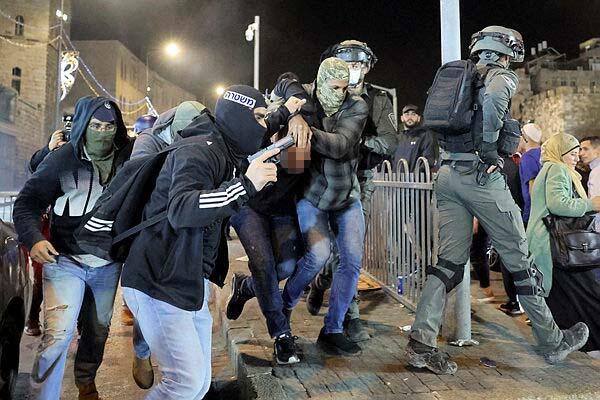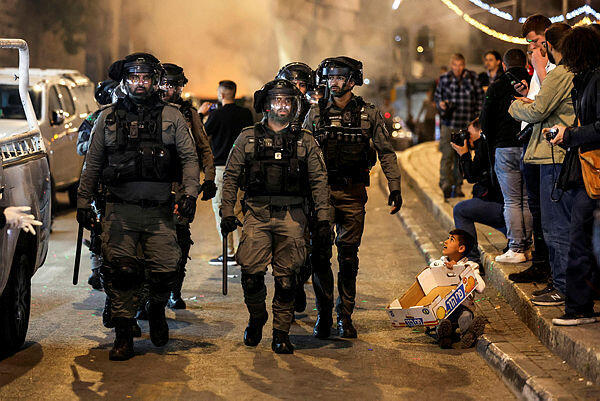The Damascus Gate in the Old City of Jerusalem was tense but quiet on Monday after nighttime clashes between Israeli police forces and Palestinian rioters.
The security forces arrested at least ten Palestinians as the two parties clashed violently late on Sunday after evening Ramadan prayers. One of the policemen at the scene was lightly wounded by a bottle thrown at him that hit him in the face.
East Jerusalem Operations Chief Superintendent Amir Ben Kiki told Ynet on Monday The Israel Police is preparing for more of the same later in the day.
"We have been preparing for a few months, and went through a few possible scenarios, including violent confrontations, the more they will try to test us, the more determined the police officers will be to stop them," Ben Kiki said.
Video footage from Damascus Gate riots on Sunday showed a crowbar that was thrown at police officers, who responded by drawing guns against the Palestinians who gathered around them.
In addition, many young men were rioting near the officers, who responded with batons, and six police officers were also seen in civilian clothes as two of them detained a suspect on the road.
"A handful of people, from tens of thousands who arrived, threw stones and bottles. A cop was hit on the head, another officer broke his arm. We do everything to prevent violations of the order, including dialogs with their community, but it's not always under our control," officer Ben Kiki said.
Damascus Gate riots
(Video: Gil Yohanan, Israel Police Spokesperson)
When asked if an order was given to try and prevent confrontations even at the cost of police officers being attacked, Ben Kiki said, "the officers don't try to cause a further escalation, on the contrary."
"When they throw stones and bottles, we attempt to arrest only those who are responsible for incitement. However, in some situations, things go out of control and we have no choice but to use measures. We try to maintain the [Ramadan] holiday routine, but extremists choose to disrupt the public order."
Ben Kiki added that in order to calm the tensions, the Arab community must reject the violence.
"We will be tough against those who try to disrupt the public order and cause riots, but the Arab population itself must tell those who are responsible for the riots that they don't want this, and that they only wish to celebrate Ramadan. There are tens of thousands of normative people and only because a few radicals - riots break out," he said.
The official was also asked if he believes the relatively small riots can ignite a wave of violence in other areas or in the country.
"We dealt with a sequence of incidents over the recent past, including murderous attacks. And we must understand that some events have greater effects than others."





